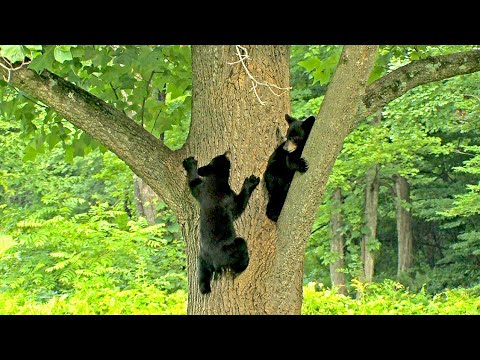Introduction: Black Bears in Rhode Island
Black bears are magnificent creatures that have captured the imagination of people for centuries. While they are commonly associated with more remote and rugged areas, many wonder if these impressive animals inhabit the small state of Rhode Island. In this article, we will explore the presence of black bears in Rhode Island, their historical range, current population status, behavior and characteristics, as well as the efforts being made to ensure their conservation, and safety measures for humans to coexist with them.
Historical Presence of Black Bears in Rhode Island
Black bears once roamed the forests of Rhode Island, but as human settlements expanded and forests were cleared, their population dwindled. By the 19th century, black bears had been completely eradicated from the state. Nevertheless, the historical records and folklore suggest that black bears were once a part of Rhode Island’s natural ecosystem.
Habitat and Range of Black Bears in Rhode Island
Black bears have a broad range of habitats, including forests, swamps, and mountains. Although Rhode Island is the smallest state in the United States, it still offers suitable habitat for black bears. The state’s forests, particularly the western and northern regions, provide the necessary cover and food sources for these animals.
Population Status of Black Bears in Rhode Island
After being absent for many years, black bears have started to make a comeback in Rhode Island. The Rhode Island Department of Environmental Management (DEM) estimates that there are currently around 100 black bears in the state. This small but growing population indicates a positive trend for the species in Rhode Island.
Black Bear Behavior and Characteristics
Black bears are known for their incredible strength, agility, and adaptability. They are primarily herbivorous, feeding on a variety of vegetation, berries, nuts, and occasionally insects or small mammals. These bears are generally shy and non-aggressive, preferring to avoid human contact whenever possible.
Tracking and Monitoring Black Bears in Rhode Island
To better understand the behavior and movement patterns of black bears in Rhode Island, wildlife biologists have been using various tracking and monitoring techniques. These include radio collars, trail cameras, and DNA analysis of hair samples. By studying their movements and habits, researchers can gain valuable insights into their population dynamics and habitat usage.
Confirmed Sightings of Black Bears in Rhode Island
Over the past decade, there have been numerous confirmed sightings of black bears in Rhode Island. These sightings have been reported in various towns and cities, including Exeter, Hopkinton, and Richmond. While these bears are typically observed in more rural areas, they have occasionally ventured into suburban neighborhoods in search of food.
Factors Affecting Black Bear Presence in Rhode Island
The presence of black bears in Rhode Island is influenced by several factors. One of the main factors is the availability of suitable habitat, including forests with ample food resources. Additionally, the connectivity between different forested areas plays a crucial role in allowing bears to move and establish territories within the state.
Human-Bear Interactions in Rhode Island
As the black bear population continues to grow, there is an increased likelihood of human-bear interactions. These interactions are usually benign, with bears simply passing through residential areas in search of food. However, it is important for residents to take precautions to avoid attracting bears by securing garbage cans, removing bird feeders, and not leaving pet food outside.
Conservation Efforts for Black Bears in Rhode Island
Recognizing the importance of conserving black bears, Rhode Island has implemented various initiatives to protect and manage their population. The DEM collaborates with other agencies and organizations to monitor bear activity, raise public awareness, and develop strategies for minimizing conflicts between humans and bears.
Safety Measures for Dealing with Black Bears in Rhode Island
While black bears generally pose little threat to humans, it is essential to know how to safely interact with them. If encountering a black bear, it is crucial to remain calm, avoid direct eye contact, and slowly back away without turning your back. If a bear approaches, making loud noises or throwing objects may help deter them. It is important to remember that feeding or approaching bears is illegal and may endanger both humans and bears.
Conclusion: Coexistence with Black Bears in Rhode Island
The resurgence of black bears in Rhode Island is an exciting development that highlights the state’s commitment to biodiversity conservation. It is possible for humans and bears to coexist peacefully by respecting the natural behavior of these magnificent creatures and taking simple precautions to minimize human-bear conflicts. With continued conservation efforts and public awareness, black bears can thrive once again in the forests of Rhode Island, enriching the state’s ecological diversity.





